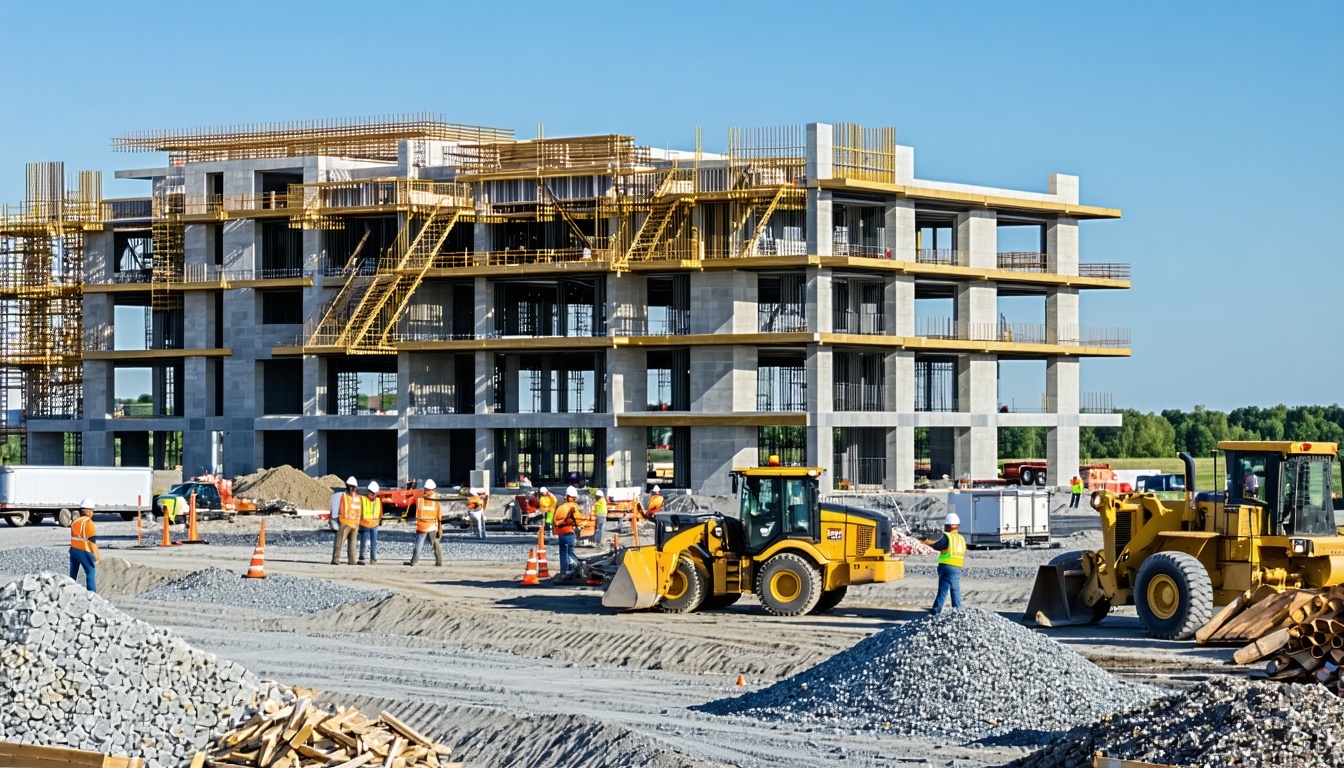KEY POINTS
-
A recent Federal Reserve Ninth District survey found that over half of construction firms reported decreased activity, with clients delaying projects in hopes of better economic conditions.
-
Construction firms are still dealing with cost pressures from materials and tariffs, but recent price increases have slowed compared to previous years.
-
The survey also highlighted intensified competition and shrinking backlogs. While the overall outlook is cautious, firms hoped greater clarity could lead to a rebound in activity.
A newly released survey from the Minneapolis Federal Reserve found that construction companies across the Upper Midwest face a tougher-than-expected business environment. Construction companies are dealing with rising costs, project delays, and growing economic uncertainty.
The survey respondents included 252 construction leaders between late April and early May from across the Federal Reserve’s Ninth District (Minnesota, the Dakotas, Montana, parts of Wisconsin, and Michigan).
It found that many firms started 2025 feeling hopeful. However, that optimism faded as higher prices and unpredictable policies created a challenging planning environment.
“Things were looking good at the start of the year, but now we’re worried about tariffs, high interest rates, and the possibility of more inflation,” said one architectural firm leader (survey results are anonymized).
Projects on Hold and Fewer New Jobs
Over half of the construction companies surveyed said business slowed down in the past six months, twice as many as those who saw business improve.
The survey found that owners had paused projects anticipating falling interest rates and material prices. Some construction firms have moved up scheduled work, leaving them with fewer projects in the pipeline.
Construction companies had hoped that lower costs and cheaper borrowing would spark new construction and refill their schedules. Instead, uncertainty over trade policies and tariffs has led to delays and cancellations.
“It’s tough to bid on jobs when we don’t know what materials will cost in six months because of tariffs,” said a Minnesota contractor.
“The top concern among those surveyed was the impact of government policies and regulations, including tariffs. ‘Economic uncertainty leads to less investment, which leads to less development,’ remarked a respondent from an engineering firm.” Federal Reserve Bank of Minneapolis
Rising Costs Still a Challenge
While price increases have slowed compared to previous years, many companies are still feeling the pinch. About 44% of firms said their material costs increased more than 5% recently.
The Minneapolis Fed reported that the figure is less than last year, but it is still challenging. Steel and concrete prices are climbing faster than others, and some suppliers are now adding extra charges due to tariffs.
According to the survey, construction workers’ wages are still rising, though not as fast as before. Most companies said they’re paying more, especially for skilled trade workers.
Tougher Competition Expected
Nearly half of those surveyed expect things to get worse before they get better. The top concern was the impact of government rules, tariffs, and other policies that make it hard to predict what’s coming next.
“When the economy feels uncertain, people invest less, which means fewer new buildings,” said an engineering firm leader.
Respondents said that fewer public and private projects are up for grabs, and they expect competition for those jobs to get even tougher. “With fewer projects, everyone is fighting for the same work, pushing prices down,” a South Dakota contractor responded. “We’re making less money, but our costs are still high.”
Despite the slowdown, most construction firms are still hiring, with 43% looking for full-time workers. Finding skilled construction labor remains a significant challenge throughout North America.
Looking for Some Stability
With fewer projects, shrinking backlogs, and lower revenues, some construction leaders have cut their expectations for 2025. The survey suggested they want a bit more certainty about the future of construction.
“We just need to know what to expect,” an industrial contractor from South Dakota said. “That would help everyone get back on track.”
Construction economy news and insights you can act on.
Subscribe to our economic reports
About ConstructConnect
At ConstructConnect, our software solutions provide the information construction professionals need to start every project on a solid foundation. For more than 100 years, our insights and market intelligence have empowered commercial firms, manufacturers, trade contractors, and architects to make data-driven decisions and maximize productivity.
ConstructConnect is a business unit of Roper Technologies (Nasdaq: ROP), part of the Nasdaq 100, S&P 500, and Fortune 1000.
For more information, visit constructconnect.com
